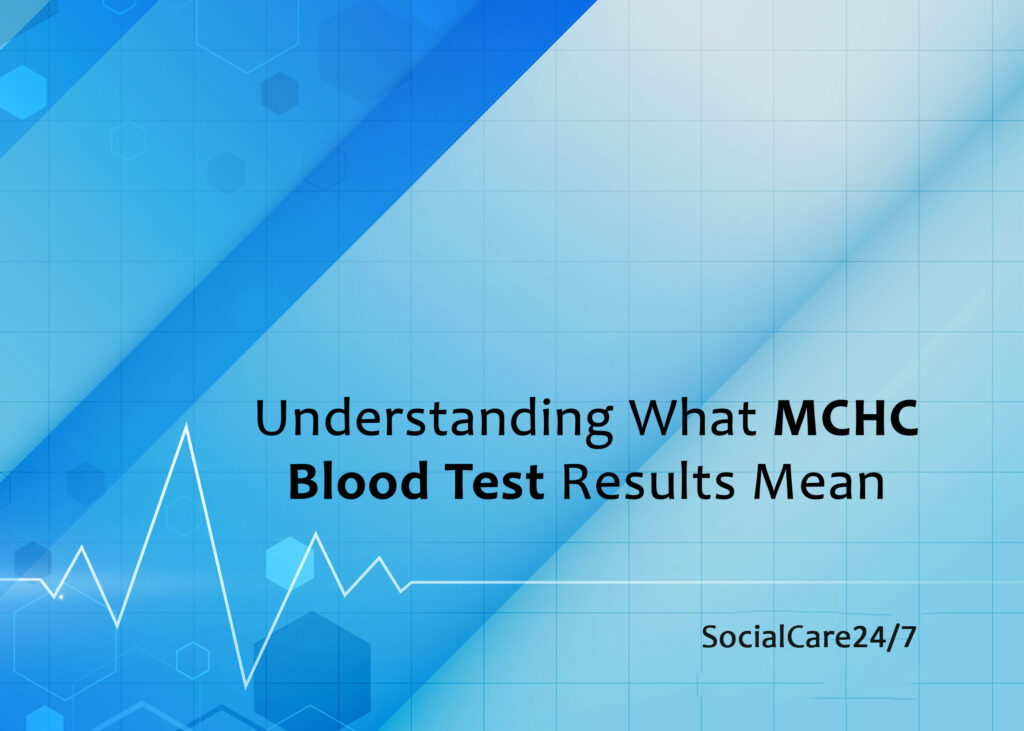The MCHC Blood Test is essential to assess red blood cell health. The hemoglobin level in red blood cells is essential for diagnosis. All body parts receive oxygen from hemoglobin.
This test is important in detecting health concerns and blood health. MCHC testing may improve your health and assist with anemia and uncommon blood diseases.
In this article, we discuss what an MCHC blood test is and why it’s essential to deal with abnormal MCHC low and high levels
What is the MCHC Blood Test?
The MCHC blood test assesses red blood cell hemoglobin density. Mean Corpuscular Hemoglobin Concentration (MCHC). MCV and MCH measure red blood cell size and absolute hemoglobin content, respectively. However, MCHC measures hemoglobin concentration by cell volume. This one-of-a-kind metric is essential for finding specific kinds of anemia and other blood disorders.
Also Check: Does Fitbit Measure Blood Pressure and Heart Rate
The MCHC test, part of a CBC, helps determine how well your blood moves oxygen around. People often get it done when they have signs of anemia or other blood problems, like feeling tired, weak, short of breath, or having a pale complexion.
Role of MCHC in Diagnosing Anemia
Anaemia, a shortage of healthy red blood cells, is a typical MCHC blood test result. MCHC levels vary significantly by anemia type:
- Low MCHC (Hypochromia): Iron deficiency anemia and thalassemia lower hemoglobin levels, reduce oxygen transport, and cause fatigue and weakness.
- High MCHC (Hyperchromia): MCHC is usually seen in people with hereditary spherocytosis or hemolytic anemia, meaning their hemoglobin content is higher. High amounts of MCHC can make problems like blood clots more likely.
The MCHC test helps with targeted care, which improves patient outcomes by telling the difference between these conditions.
Why MCHC Levels Are Low?
Hypochromia, or low MCHC levels, generally indicates health issues that impair red blood cell production. Anemia from iron deficiency is the leading cause. This occurs when the body lacks iron for hemoglobin. Some things that contribute are:
- Long-Term Inflammation: Long-term inflammation can make it harder to use iron, which lowers the production of hemoglobin.
- Kidney Disease: MCHC levels are affected by a lack of erythropoietin, a hormone needed to make red blood cells.
- Poor Iron Absorption: Celiac disease and stomach surgery can reduce iron absorption.
Why MCHC Levels Are High?
Hemolytic anemia can be indicated by hyperchromia or elevated MCHC values. Red blood cells are decomposing quicker than they are being created. Some of the things that cause MCHC to be high are:
- Diagnoses of autoimmunity: Sometimes, when someone has lupus, their immune system will attack red blood cells.
- Infections and Giving Blood: Some infections and problems that can happen after a blood donation can raise the hemoglobin
- Genes that cause spherocytosis: A genetic disorder that makes red blood cells have an odd shape making MCHC levels rise.
How does the MCHC Blood Test Work?
The MCHC blood test is part of a CBC, a common way to determine what’s wrong. The process is simple and doesn’t involve much damage:
- Medical professionals take blood from a vein in your arm with a small needle.
- One jar of blood is filled with it and sent to a lab for testing.
- Results, such as MCHC readings, are usually ready in one or two days.
Interpreting MCHC Test Results
Typical MCHC values are 32–36 g/dL. The reference values may vary slightly between labs. Results outside of this area need more research:
- Below Normal Range: Shows diseases like thalassemia, iron deficiency anemia, or anemia caused by a long-term illness.
- Above Normal Range: This could indicate hemolytic anemia, inherited spherocytosis, or a lab error.
It is essential to talk to your doctor about your results. They can help put them in context by examining your medical background and symptoms.
Potential Limitations of the MCHC Blood Test
Unfortunately, the MCHC blood test isn’t always accurate for the following reasons:
- Recent Donations of Blood: Can change hemoglobin levels briefly.
- High levels of bilirubin: High amounts of bilirubin could mess up test results.
- Mistakes in the lab: You could get the wrong results if you don’t handle blood samples properly.
If your MCHC results don’t match up with your symptoms or medical background, your doctor may suggest that you retake the test or have more diagnostic tests.
Why it’s essential to deal with abnormal MCHC levels
Often, abnormal MCHC levels are a sign of deeper health problems that need immediate care. Treatment choices may include the following, depending on the cause:
- Changes to your diet: Eat extra iron-rich meals or use iron pills to treat iron deficiency anemia.
- Taken medicines: Getting MCHC levels back to normal is possible by treating underlying conditions like autoimmune diseases or infections.
- Interventions for the Future: In the worst situations, people may need blood transfusions or bone marrow replacements.
Keeping an eye on MCHC levels is essential for both finding anemia and figuring out how people will do after having heart attacks or pulmonary embolisms.
Conclusion
The MCHC blood test is integral to medical medicine because it tells you much about how much oxygen your blood can carry. As part of a regular CBC, it helps find anemia, monitor long-term conditions, and check general health.
Knowing what happens when MCHC levels aren’t normal lets you make smarter health decisions, improving results and quality of life.
Source Links;
https://www.health.com/mchc-blood-test-7092747
https://www.verywellhealth.com/mean-cell-hemoglobin-concentration-4584155



